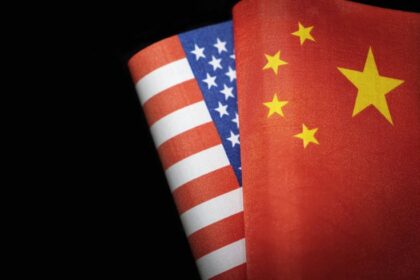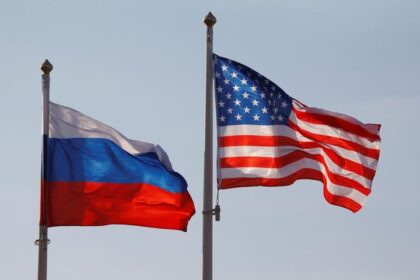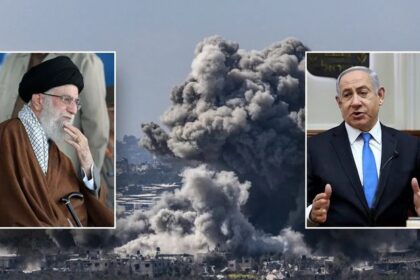The predominantly US- and Western-allied Afghan Ashraf Ghani government collapsed on August 15, 2021, and the Taliban took over Kabul. Today, equipped with the latest American weaponry, supplied by the biggest military-industrial complex in the world, the Afghan Army let itself be defeated by the Taliban. The Taliban emerged from the jagged rocks of Afghanistan, and yet, they were able to establish themselves and capture several places due to a real or implied lack of military resistance. In our very own Pakistan, this particular growth was highly appreciated. Some intelligent people congratulated the Taliban, saying things like:
“You have cut off the chains of slavery,”
and one even drank tea in Kabul and said:
“Don’t worry, everything will be okay”.
To this day, things have been worse for Pakistan.
While many Pakistanis were celebrating the U.S. exit from Afghanistan, our leadership and establishment were also pleased with the situation, as they believed that they had regained the same strategic depth in the country that they had enjoyed after the Soviet withdrawal. However, they seemed to forget that the same Taliban defeated the interests of Russia, America, and Great Britain. Shortly after the Taliban took control of Kabul, border skirmishes began. The calm that had been achieved through the efforts of security forces and local tribesmen was once more in danger. Terrorism in the areas bordering Afghanistan declined after 2016, but militancy sharply surged once more after 2021. 2024 became the bloodiest year in Pakistani history as a result of the same. 2024 witnessed massive deaths of personnel of military and civil armed forces.

Nowadays, the state has a rather complicated and challenging position regarding Afghanistan. Large proportions of the unlawful refugees have been expelled in an attempt to apply pressure on the Taliban; nevertheless, the goal has not been very successful. With the aim of curbing militancy; all the parties have agreed with the government to launch Operation Azme-Istekham. Though we have, on certain occasions, conducted operations on the borders that led to a short lucid interval, considering the general condition of affairs, it might be even worse than before. Despite using threats to do so many times, the Taliban have not been keen on implementing harsh actions against TTP safe havens, despite a general warning to Afghanistan. Due to this ambiguous position, the Pakistan Air Force began airstrikes in Afghanistan’s Barmal province.
The Afghans are reluctant to act against the Tehrik-i-Taliban Pakistan (TTP) as they do not want to risk any confrontation with the TTP, stating that imposing any terms on the TTP now may result in an armed confrontation. Such an environment may lead to the forming of new factions that, together with the TTP, might lead to a civil war—a situation that the Taliban will not be able to manage. One wonders how India happened to jump into the scene. It is recalled that, on January 7, India reacted to the airstrike on Afghanistan by Pakistan, and on January 8, the foreign secretary of India, Vikram Misri, met Afghanistan’s foreign minister, Amir Khan Muttaqi. Of course, many analysts have noted that India wished to trade with Afghanistan using the Chabahar port. If so, Afghanistan will not be waiting for the trading through Pakistan’s Karachi and Gwadar ports. Some time back, Pakistan shut the doors on Afghanistan through its ports due to non-adherence to the agreed rules. As India has already started to increase its footprint in Afghanistan, that may prove disastrous for Pakistan as well; the position of Pakistan is very vulnerable. India has anteed up to Afghan advancement programs. India pledged 36 million US dollars to Afghanistan in 2023 and gave tonnes of wheat too. Even more interesting is the fact that the Taliban identified India as a strategic and economic power in the region.

In Pakistan’s power circles, this bonhomie has raised quite a few eyebrows. There is a belief that Pakistan has lately devised a strategy that will see Tajikistan join the latter in a bid to counter this Indo-Afghan influence. Due to this, Pakistan has advocated the annexing of the Wakhan corridor and has been vocal about troops from both China and Pakistan. The Wakhan corridor is a thin strip of territory in the Afghan Badakshan province. Eastward, the main transport axis splits Khyber Pakhtunkhwa and Gilgit-Baltistan from the Badakhshan Autonomous territory in northern Tajikistan and connects Afghanistan to the Xinjiang province in China. Currently, there is no proof for this concept in Tajikistan. Will this area get a brand-new, fantastic game? One is unsure. Even though the IMF is kind of an overseeing body for Pakistan’s economy, Pakistan doesn’t possess much in terms of economic power. If Pakistan wants to exercise sovereign rights in this region as it deems fit, then this country must be on its legs. Where Pakistan lacks in strategic depth, it requires economic depth, and for that, the government of Pakistan needs to unite and start working. Pakistan must take its border security policies seriously because the Taliban are no longer equipped with AK-47s; instead, they now have state-of-the-art weaponry left by the US forces. Many of our citizens and soldiers have lost their lives in insurgencies and terrorism. It is imperative that all parties involved, particularly the federal government and the KPK government, put aside their disagreements and resolve this policy failure.
















